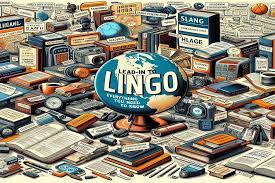Introduction to FintechAsia.net and Crypto Facto
Welcome to the cutting-edge world of FintechAsia.net and Crypto Facto, where innovation meets opportunity in the realm of blockchain technology! Get ready to dive deep into the fascinating evolution, applications, challenges, and future prospects of this game-changing digital phenomenon. Join us on this exciting journey as we explore how blockchain is reshaping industries and revolutionizing the way we interact with data and transactions. Let’s embark on an enlightening adventure into the rise of blockchain technology together!
Understanding Blockchain Technology
Blockchain technology is a revolutionary concept that underpins cryptocurrencies like Bitcoin. At its core, blockchain is a decentralized digital ledger that records transactions across multiple computers in a secure and transparent manner. Each transaction is stored in a block, which is linked to the previous one, forming a chain of blocks – hence the name “blockchain.”
The beauty of blockchain lies in its transparency and immutability. Once data is recorded on the blockchain, it cannot be altered or deleted without consensus from the network participants. This feature ensures trust among users and eliminates the need for intermediaries.
Smart contracts are another exciting application of blockchain technology. These self-executing contracts automatically enforce terms and conditions written into code when predetermined conditions are met. This innovation has vast potential to streamline processes across various industries.
Understanding blockchain technology opens up a world of possibilities beyond just cryptocurrencies. Its decentralized nature, security features, and smart contract capabilities make it a game-changer in many sectors moving forward.
The History of Blockchain and its Evolution
Blockchain technology, the backbone of cryptocurrencies like Bitcoin, has a fascinating history dating back to 1991 when Stuart Haber and W. Scott Stornetta conceptualized a cryptographically secured chain of blocks to timestamp digital documents.
However, it was in 2008 that an individual or group using the pseudonym Satoshi Nakamoto introduced blockchain as a core component of Bitcoin.
The decentralized nature of blockchain brought about trustless transactions and opened up possibilities beyond just cryptocurrency.
As more industries recognized its potential, various iterations such as Ethereum with smart contracts emerged to expand the use cases of blockchain technology.
This distributed ledger system gained traction for its transparency, security, and efficiency in recording transactions across multiple parties without requiring intermediaries.
Advantages of Blockchain Technology
Blockchain technology offers a range of advantages that have revolutionized various industries. One key benefit is decentralization, eliminating the need for intermediaries and reducing transaction costs. This transparency enhances security and trust among participants in the network.
Another advantage is immutability, as once data is recorded on the blockchain, it cannot be altered or deleted without consensus from the network. This feature ensures data integrity and prevents fraud or tampering.
Blockchain also enables faster transactions by removing delays caused by traditional processes like manual verification and reconciliation. Smart contracts automate these actions based on predefined conditions, streamlining operations and saving time.
The technology’s scalability allows for increased transaction volumes without compromising performance, making it suitable for applications ranging from financial services to supply chain management. Moreover, its cost-efficiency makes blockchain an attractive solution for businesses looking to streamline their operations while ensuring data security.
Real World Applications of Blockchain
In the real world, blockchain technology is revolutionizing various industries. One prominent application is in supply chain management, where it enhances transparency and traceability throughout the entire process. By recording transactions on a decentralized ledger, companies can easily track products from their origin to consumers.
Another impactful use case is in healthcare, where blockchain ensures secure storage and sharing of sensitive patient data. This not only protects privacy but also streamlines interoperability among different healthcare providers. Additionally, smart contracts based on blockchain technology are transforming the legal industry by automating contract execution and reducing the need for intermediaries.
Moreover, blockchain’s immutability makes it ideal for voting systems, ensuring tamper-proof elections with increased trust and efficiency. The possibilities are endless as more sectors adopt this innovative technology to improve operations and enhance security measures across diverse fields.
Challenges and Limitations
Blockchain technology, despite its many benefits, is not without its challenges and limitations. One of the key issues facing blockchain is scalability. As the number of transactions increases, so does the strain on the network, leading to slower transaction times and higher fees.
Another challenge is regulatory uncertainty. Governments around the world are still grappling with how to regulate cryptocurrencies and blockchain technology, leading to a lack of clarity for businesses operating in this space. This can hinder innovation and investment in blockchain projects.
Security is also a major concern in the world of blockchain. While blockchain is often touted as secure due to its decentralized nature, there have been instances of hacks and vulnerabilities that have exposed weaknesses in certain implementations.
Interoperability between different blockchains is another hurdle that developers are working to overcome. The ability for different blockchains to communicate with each other seamlessly would greatly enhance the potential applications of this technology across various industries.
Future Outlook for Blockchain Technology
As we look towards the future, the potential of blockchain technology continues to expand. The integration of blockchain in various industries like finance, healthcare, supply chain management, and more is on the rise. This trend suggests that blockchain is here to stay and will likely revolutionize how businesses operate.
With ongoing advancements in scalability and interoperability, we can expect blockchain technology to become even more efficient and versatile. As more companies adopt blockchain solutions, we may see increased transparency, security, and cost-effectiveness across sectors.
Moreover, as regulatory frameworks around the world adapt to accommodate blockchain innovations, it paves the way for further adoption and mainstream acceptance. The emergence of decentralized finance (DeFi) platforms and non-fungible tokens (NFTs) are just glimpses of what’s possible with this groundbreaking technology.
In essence, the future outlook for blockchain technology appears promising as it continues to disrupt traditional processes and drive innovation across industries globally.
Conclusion
The rise of blockchain technology has paved the way for revolutionary changes across various industries. FintechAsia.net and Crypto Facto are at the forefront of exploring and promoting this cutting-edge technology. As we continue to witness the evolution and adoption of blockchain, it is evident that its potential is limitless.
From enhancing security and transparency to streamlining processes and reducing costs, blockchain offers a multitude of benefits that will shape the future of finance, healthcare, supply chain management, and beyond. Despite facing challenges and limitations, ongoing innovation in this space holds promise for overcoming obstacles and unlocking new possibilities.
As we look ahead, it is clear that blockchain technology will continue to disrupt traditional systems and drive digital transformation on a global scale. By staying informed, embracing change, and collaborating within the fintech ecosystem, we can harness the power of blockchain to create a more efficient, secure, and interconnected world. The journey towards realizing the full potential of blockchain has only just begun – exciting times lie ahead for FintechAsia.net crypto facto!










